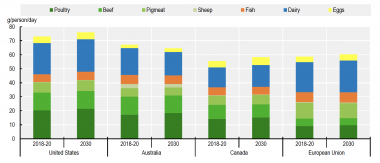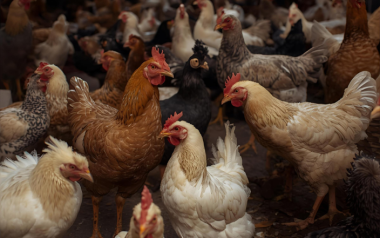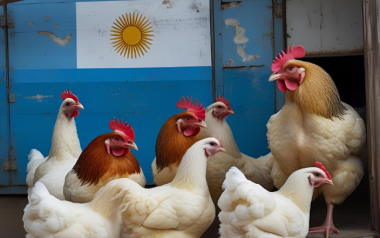“It brings together the commodity, policy, and country expertise of both organizations as well as input from collaborating member countries to provide an annual assessment of the prospects for the coming decade of national, regional, and global agricultural commodity markets. The publication consists of 11 Chapters; Chapter 1 covers agricultural and food markets; Chapter 2 provides regional outlooks, and the remaining chapters are dedicated to individual commodities”.
22 Jul 2021
Animal protein consumption forecast up to 2030: OECD & FAO Agricultural Report
The Organisation for Economic Co-operation and Development (OECD) and the Food and Agriculture Organization (FAO) of the United Nations have […]
Available in other languages:
The Organisation for Economic Co-operation and Development (OECD) and the Food and Agriculture Organization (FAO) of the United Nations have released the Agricultural Outlook 2021-2030.
Here are a summary of the per capita consumption estimations for animal protein from 2021 to 2030. The report established a high gap between meat consumption in low, middle, and high-income countries. It is expected a slow increase in meat consumption in high-income countries. However, due to health and environmental concerns, most people will prefer poultry meat than red meat (Figure 1). This increase in poultry meat is projected to account for over half of additional animal protein availability over the coming decade.
“Poultry is also more affordable than other meat types, which will also contribute to growing poultry demand in middle and low-income countries”.

Figure 1. Per capita availability of animal protein in selected high-income countries
Note: Estimates are based on historical time series from the FAOSTAT Food Balance Sheets database which are extended with the Outlook database. Products not covered in the Outlook are extended by trends. Source: FAO (2021). FAOSTAT Food Balances Database, “OECD-FAOAgricultural Outlook”, OECD Agriculture statistics (database)
In contrast, in middle-income countries, animal protein consumption will increase by 2.8 g/person/day, which helps to a growing share of total protein availability up to 2030. But, the animal protein demand will depend on the country and the consumer preferences. In Latin American countries, the per capita consumption of dairy, poultry, and pork will continue to
TO CONTINUE READING REGISTER IT IS COMPLETELY FREE
Access to articles in PDF
Keep up to date with our newsletters
Receive the magazine for free in digital version
REGISTRATION
ACCESS
YOUR ACCOUNT
LOGIN
Lost your password?







































